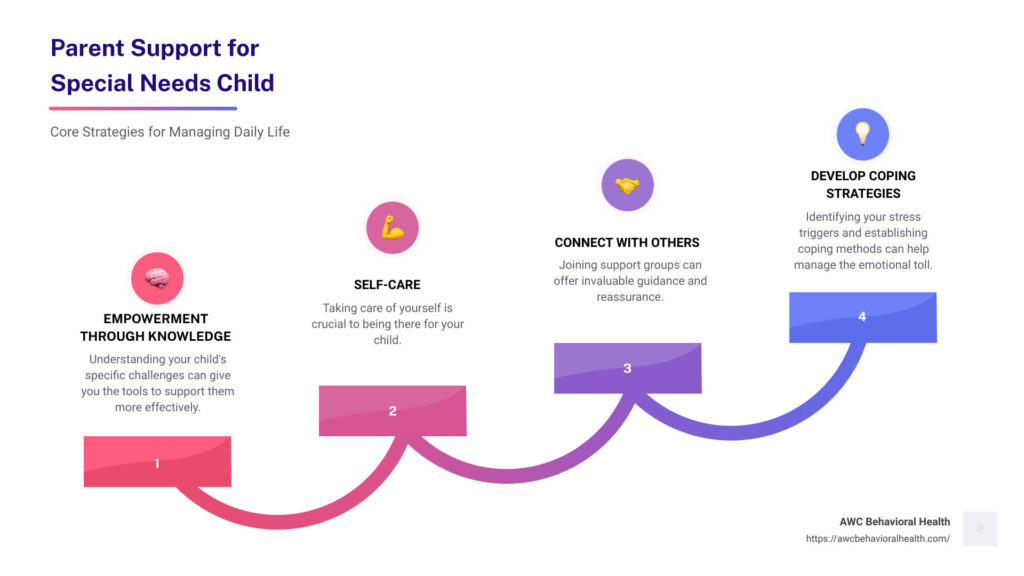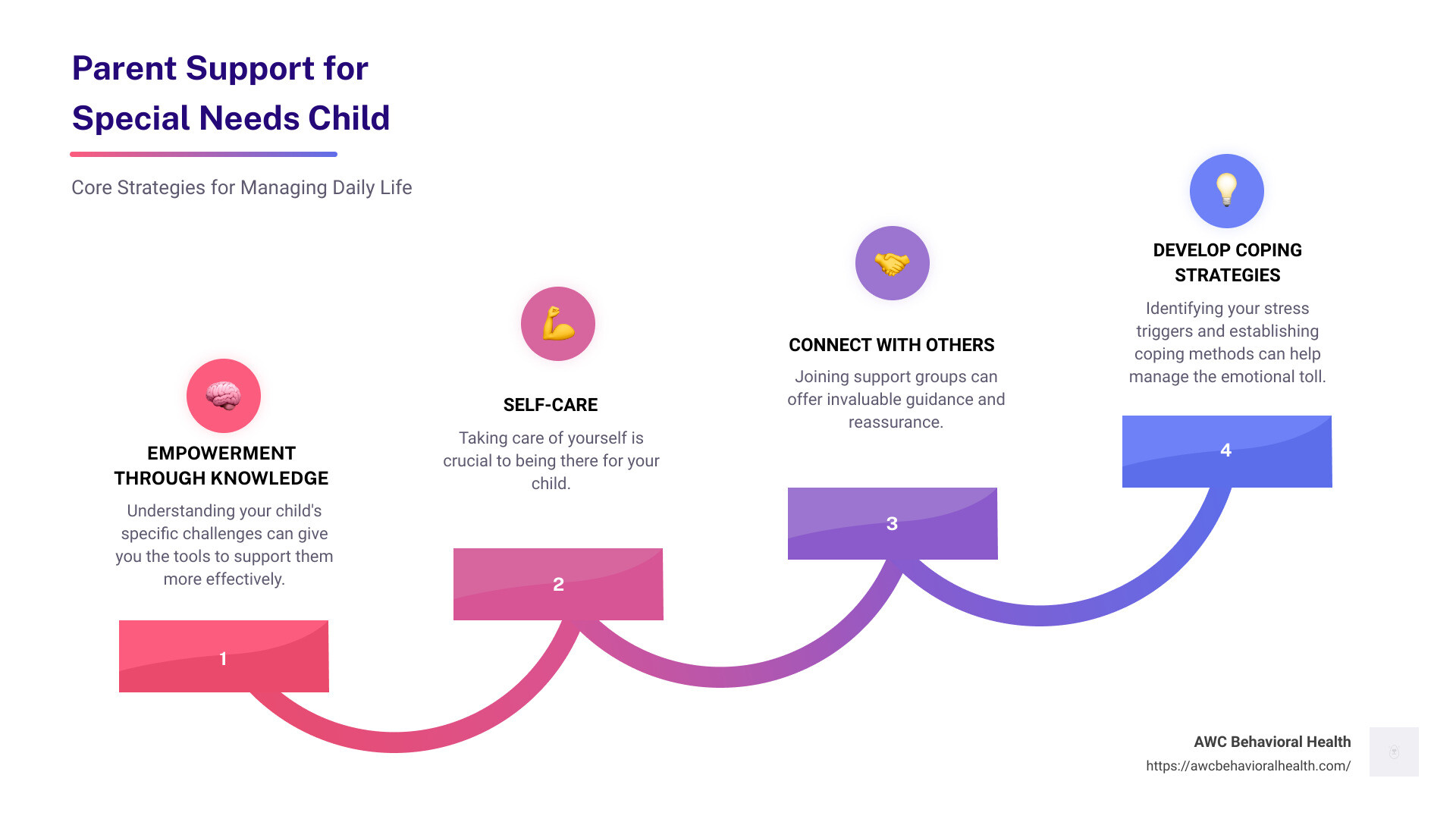
Understanding Parental Needs: A Comprehensive Guide for Modern Families
Parenting, a journey often described as both the most rewarding and the most challenging endeavor, is constantly evolving. To effectively navigate this landscape, understanding parental needs is paramount. This guide aims to provide a comprehensive overview of those needs, offering insights and practical advice for modern families. We’ll delve into the physical, emotional, and practical aspects of parenting, acknowledging the diverse experiences and challenges faced by parents today. Recognizing and addressing these parental needs not only benefits the parents themselves but also fosters a healthier and more nurturing environment for their children.
The Foundation: Basic Parental Needs
At the most fundamental level, parental needs encompass basic necessities that allow parents to function effectively. These include:
- Financial Stability: The ability to provide for a child’s essential needs, such as food, shelter, clothing, and healthcare, is a primary concern for most parents. Financial strain can significantly impact a parent’s mental and emotional well-being.
- Physical Health: Parents need to prioritize their physical health to have the energy and stamina required to care for their children. This includes adequate sleep, a healthy diet, and regular exercise.
- Access to Healthcare: Both preventative and acute healthcare services are crucial for parents to maintain their well-being and effectively care for their children.
- Safe and Stable Housing: A secure and stable living environment is essential for a child’s development and a parent’s peace of mind.
Emotional Well-being: A Critical Parental Need
Beyond the basics, emotional well-being is a crucial aspect of parental needs. Parents often experience a wide range of emotions, from joy and pride to stress, anxiety, and exhaustion. Addressing these emotional needs is vital for maintaining mental health and fostering positive relationships with their children.
The Importance of Self-Care
Self-care is often overlooked but is a critical component of meeting parental needs. It involves engaging in activities that promote physical, emotional, and mental well-being. This could include:
- Mindfulness and Meditation: Practicing mindfulness can help parents manage stress and anxiety.
- Hobbies and Interests: Engaging in enjoyable activities outside of parenting can provide a sense of identity and fulfillment.
- Social Connection: Maintaining relationships with friends and family can provide emotional support and reduce feelings of isolation.
- Therapy or Counseling: Seeking professional help can be beneficial for parents struggling with mental health challenges.
Managing Stress and Burnout
Parental burnout is a real and serious issue that can have significant consequences. Recognizing the signs of burnout, such as chronic exhaustion, detachment from children, and feelings of ineffectiveness, is the first step in addressing it. Strategies for managing stress and burnout include:
- Setting Realistic Expectations: Avoid striving for perfection and accept that mistakes are inevitable.
- Delegating Tasks: Sharing responsibilities with a partner, family member, or hired help can reduce the workload.
- Taking Breaks: Even short breaks throughout the day can make a difference in managing stress levels.
- Seeking Support: Connecting with other parents or joining a support group can provide a sense of community and validation.
Practical Support: Addressing Day-to-Day Challenges
Parental needs also extend to practical support in managing the day-to-day challenges of raising children. This includes:
Childcare Assistance
Access to affordable and reliable childcare is essential for many parents, particularly those who work outside the home. Childcare options include:
- Daycare Centers: Provide structured care and educational activities for children of various ages.
- Family Childcare Homes: Offer a more intimate and home-like setting.
- Nannies and Au Pairs: Provide personalized care in the family’s home.
- Government Subsidies: Help low-income families afford childcare.
Educational Resources
Parents need access to information and resources to support their children’s development and education. This includes:
- Parenting Classes: Provide guidance on various parenting topics, such as discipline, communication, and child development.
- Educational Workshops: Offer opportunities to learn about specific topics, such as early literacy or STEM education.
- Online Resources: Websites and online communities provide a wealth of information and support for parents.
Household Help
Managing household chores and responsibilities can be overwhelming for parents. Seeking assistance with tasks such as cleaning, laundry, and meal preparation can free up time and energy for more important things.
The Role of Society and Community
Meeting parental needs is not solely the responsibility of individual parents. Society and the community play a crucial role in providing support and resources. This includes:
Family-Friendly Policies
Government policies that support families, such as paid parental leave, affordable childcare, and access to healthcare, can significantly ease the burden on parents.
Community Programs
Community programs that offer support and resources for families, such as food banks, parenting support groups, and early childhood education programs, can make a significant difference in the lives of parents and children.
Workplace Support
Employers can play a vital role in supporting parental needs by offering flexible work arrangements, on-site childcare, and employee assistance programs.
Addressing the Unique Needs of Single Parents
Single parents often face unique challenges and require additional support. These challenges may include financial strain, lack of time, and social isolation. Resources and support specifically tailored to single parents can be invaluable.
The Evolving Landscape of Parental Needs
Parental needs are constantly evolving in response to societal changes, technological advancements, and evolving family structures. It is essential to stay informed about these changes and adapt parenting strategies accordingly. For instance, the rise of social media and technology has created new challenges for parents, such as managing screen time and protecting children from online dangers.
Promoting Positive Parenting Practices
Understanding parental needs is closely linked to promoting positive parenting practices. Positive parenting involves creating a nurturing and supportive environment that fosters a child’s healthy development. This includes:
- Effective Communication: Open and honest communication is essential for building strong relationships with children.
- Positive Discipline: Using positive discipline techniques, such as setting clear expectations and providing consistent consequences, can help children learn and grow.
- Emotional Support: Providing children with emotional support and validation can help them develop resilience and self-esteem.
The Long-Term Benefits of Meeting Parental Needs
Investing in parental needs has significant long-term benefits for families, communities, and society as a whole. When parents are supported and empowered, they are better able to provide their children with the love, care, and resources they need to thrive. This leads to healthier, happier, and more successful children, who are more likely to become productive and contributing members of society.
In conclusion, understanding and addressing parental needs is a complex but essential task. By recognizing the physical, emotional, and practical challenges that parents face, and by providing them with the support and resources they need, we can create a more nurturing and equitable society for all families. It’s not just about helping parents; it’s about investing in the future. [See also: Child Development Stages] [See also: Effective Communication with Children]

